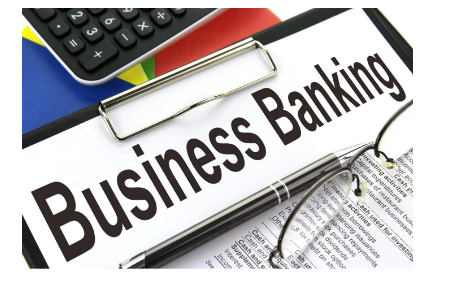5 Essential Small Business Banking Tips Management of money is the top goal of entrepreneurs particularly when operating an unproven, small business.
Unfortunately, the majority of small-sized businesses end up failing in the first 10 years after the time they open their doors. The main reason 82 percent of business owners mentioned to shutting down? Problems with managing cash flow.
What can you do to improve cash flow and keep in the flow of money through your company? One suggestion is to create a dedicated bank account for your business to keep a separate account for personal and company financial activities.
But, you’ll also have choose one that is compatible with your goals as an entrepreneur and financial requirements. Once you’ve set up your accounts, make sure to take care to manage them properly.
1. Choose the Best Bank for Your Needs
One of the biggest mistakes small-business owners do when they open a new account is to believe that the bank handling their personal accounts is the appropriate banking institution to handle their company’s accounts. It could be so however it’s important to start by comparing and then look into the choices.
Think about the services and other features you’re seeking in the bank you choose to join. You might prefer the personal service offered by a small credit union in which everyone knows you by name. Perhaps you are looking for a vast banking system with convenient ATMs and branch locations situated along every city block.
If your business requires small-scale financing, inquire about the available credit lines and loan products , along with any requirements for qualification. Additionally, you should know about their minimum balance requirements as well as the low penalty fees for balances also. These charges can quickly chew your profits if there isn’t enough sales to cover these costs.
2. Be Aware of Fee Schedules
When you open your first business bank account, you’ll be given the fee schedule. Be sure to read it thoroughly and stay vigilant to any changes in the schedule to ensure that the rising costs won’t surprise you. Costs to consider include:
Overdraft protection, also known as NSF charges These are the penalties that the bank charges to you for spending more than what the funds in your account for checking.
ATM charges These are the costs that come when you use your debit card in non-network ATMs.
Paper statement chargesThe fees for paper statements – Banks charge these additional fees if you decide to sending paper statements to your company. Be sure to avoid these charges by opting to have your statements delivered electronically.
Foreign transaction charges(or) If you are using your debit card abroad it is possible to be liable for these fees. They’re typically determined as a percentage of the amount of transactions.
Fees for wire transfers–When you transfer funds straight to an account in another bank, the financial institution might charge your account with this fee.
Bill pay online fees —Some banks charge a flat rate for every transaction that is made through their bill pay service online. Other banks might only charge the monthly fee for those who have signed up, but do not use their services.
3. Reconcile Your Statements Monthly
Review your bank statements from your business with your company’s ledgers every month — more often when you are able to. Be sure to identify every transaction, and then categorize them in your financial records. This will allow you to quickly challenge any fraudulent activity and make sure your accounts are correct and complete.
Don’t put off your accounting. The longer you put off bookkeeping reconciliations, more difficult the job becomes. This could also mean that potentially dangerous mistakes go unresolved.
4. Leverage Online and Mobile Banking Services
Many banks have mobile applications as well as a variety of online services that help make banking more efficient and easy to customers. Use these tools to help make your business more efficient and save cash:
Services for bill payThe bill pay service is available in HTML0. Similar to private checking accounts business banking accounts usually come with online bill pay options. This lets you pay vendors immediately without having to write or mail check checks in paper. Additionally you can establish automatic monthly payments for regular expenses that remain the same from month.
Transaction ledgers for online transactions– to reconcile your accounts at any time, look over the most recent activity on your online banking application. This will allow you to track precisely how much cash you have on hand, as well as preventing the possibility of account overdraws.
Profiles of employees — Particular to certain bank accounts for business is the capability to grant employees access to the account. It is possible to create employees’ profiles and personalize authorizations to ensure more control. Let one employee view the transactions, while allowing another employee to deposit and withdraw funds.
Further online offerings– Online banking lets business owners to transfer the funds across accounts and make loans and deposit checks electronically using any mobile device or laptop.
5. Get to Know Your Banker
If you’re making use of your bank’s online offerings ensure that you regularly visit the branch nearest to you. Establishing a connection with your business banker lets you ask questions face-to-face , and build a rapport with the bank’s staff. This gives you an advantage in the event that the latest support tools and services become available.
Additionally, with a secure bank connection you’ll be better placed to benefit from future lines of credit and loans. Simply having a bank account in good standing might not be enough to get traditional business financing. If your banker is aware of your company and the person responsible for it, then they could be more inclined to unwind their purse strings in your favor.
